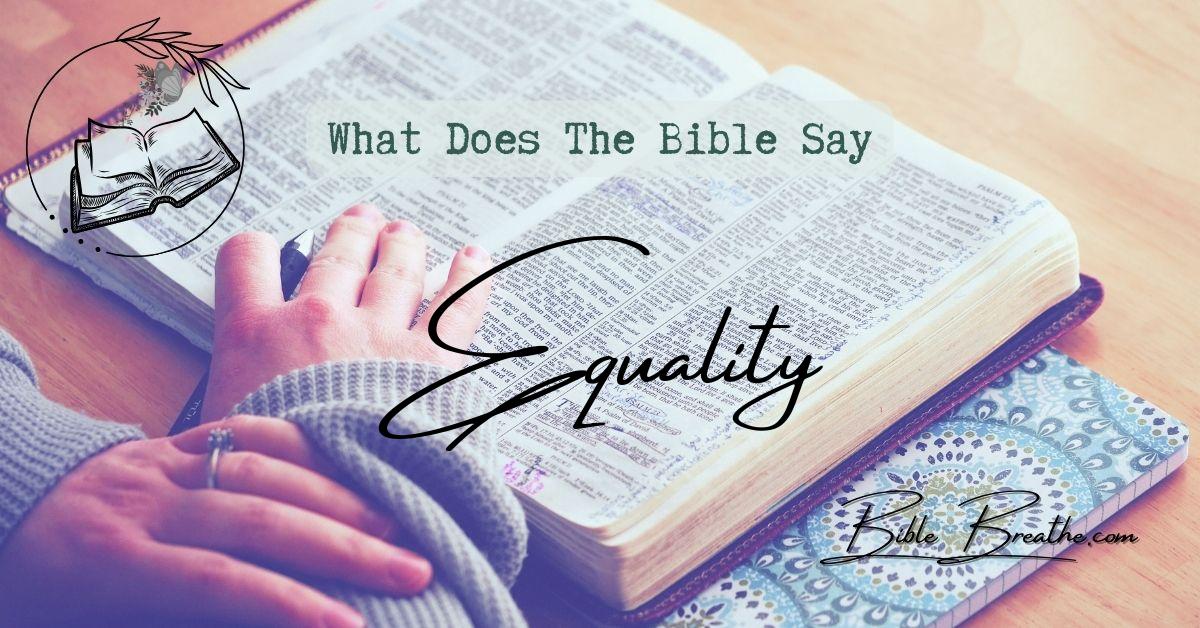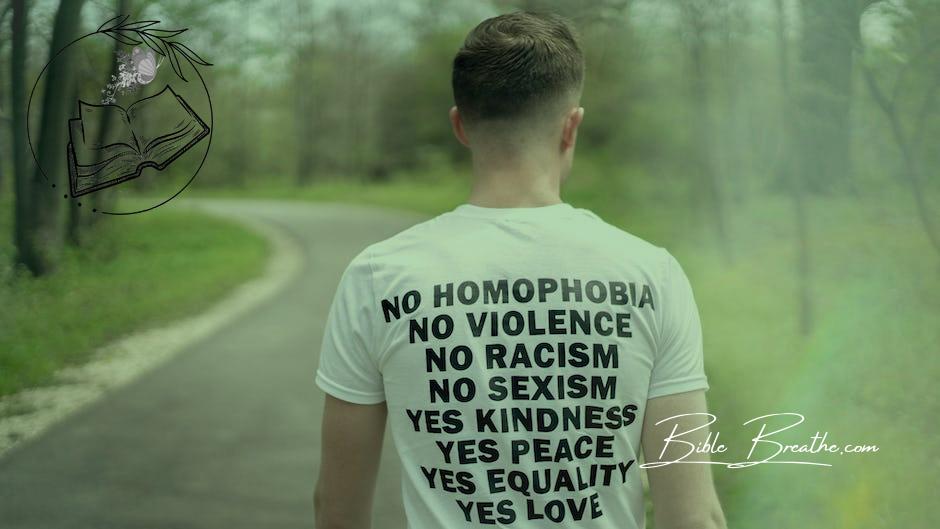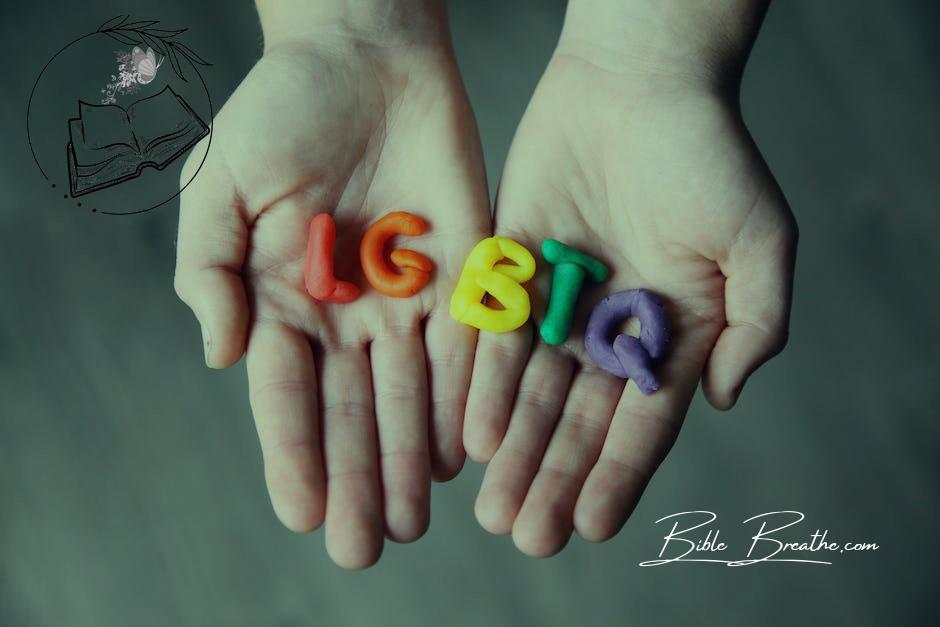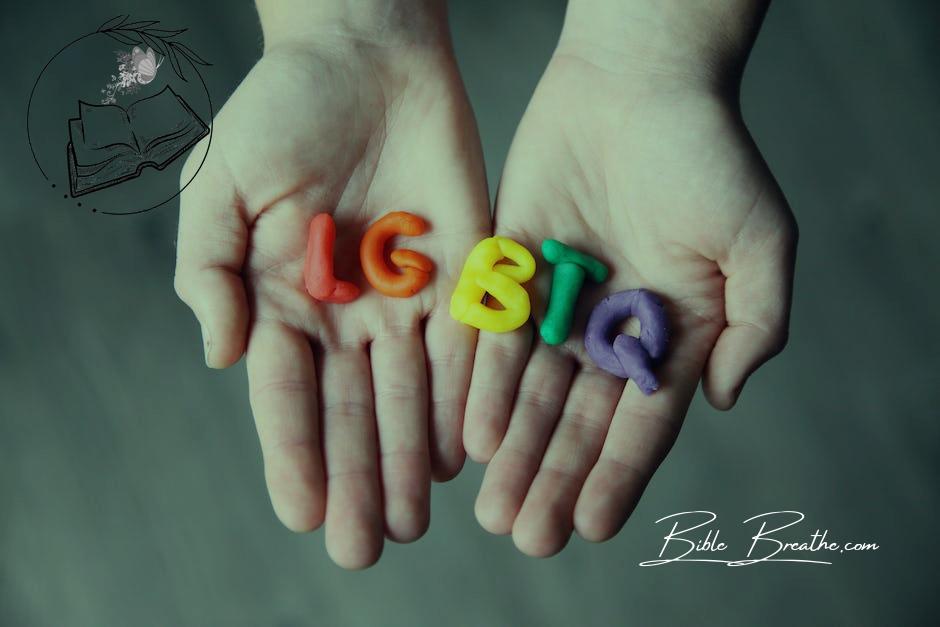What’s the Bible’s take on equality, fam?
You know, it’s a burning question in our world today.
The Bible, yeah, it might seem old-school, but it’s got some serious wisdom on this topic.
So, let’s dive into that Biblical equality pool.
From Jesus dropping knowledge on discrimination to dealing with racial equality and those sometimes tricky gender roles, it’s all in there.
Right from the jump, the Bible tells us we’re created in God’s image.
That’s like the foundation stone of our worth.
And that “love your neighbor as yourself” deal?
It’s about respecting and loving everyone.
But hey, is this just old talk, or does it fire up our lives today?
We’re gonna dig deep into how the Bible’s stance on social inequalities and love still matters in our diverse world.
It’s a timeless story, with some fresh insights for you and me.
🌟
Key Takeaways
- Message of Love and Equality: Throughout the Bible, a consistent message of love, justice, and equality resonates. It emphasizes that every person, regardless of their background, is created in the image of God and deserves equal respect and dignity.
- Relevance in Modern Times: The Bible’s teachings on equality remain highly relevant in today’s world. They inspire individuals and societies to combat discrimination, prejudice, and injustice in all forms.
- Universal Call for Respect: The scriptures call upon believers to treat every individual with respect, regardless of race, gender, social status, or any other distinguishing factor. This resonates with the golden rule of loving one’s neighbor as oneself.
- Promotion of Justice: The Bible advocates for justice and fairness, urging believers to stand up against oppression and advocate for the rights of the marginalized. It encourages a society where all have equal access to opportunities and are protected from discrimination.
- Unity in Diversity: Embracing the Bible’s teachings on equality fosters unity in diversity, emphasizing that differences should be celebrated rather than cause for division. It encourages a world where all can coexist in harmony, respecting each other’s uniqueness.
In conclusion, the Bible’s message on equality is a powerful call to love, respect, and promote justice for all individuals, transcending time and cultural boundaries.
It serves as a guiding light in advocating for a more equitable and inclusive society.
Embracing Equality: A Divine Blueprint
Photo modified by BibleBreathe.com. Original photo by Alexander Grey on Pexels
In a world bursting with differences and disparities, the notion of equality holds a special place in the hearts of many.
But what does the timeless guidebook of faith, the Bible, have to say about equality?
God’s Creative Equality
So God created man in his own image, in the image of God created he him; male and female created he them.” – Genesis 1:27 (KJV)
Think of it as God’s masterpiece, a canvas where every divine stroke shaped a unique and equally valuable individual.
In God’s eyes, there’s no favoritism based on race, gender, or social standing.
We’re all part of His grand design, a beautiful mosaic of humanity.
Equal Heirs of God’s Promise
Imagine finding an envelope in your mailbox, and inside it, an invitation to an extraordinary inheritance, open to all.
That’s precisely what the Bible offers.
The Spirit itself beareth witness with our spirit, that we are the children of God: And if children, then heirs; heirs of God, and joint-heirs with Christ…” – Romans 8:16-17 (KJV)
This inheritance isn’t about material wealth but eternal riches—an everlasting bond with our Creator.
It’s a promise that surpasses earthly inequalities, reminding us that in God’s family, we all stand on equal ground.
Jesus’ Teachings on Prejudice
Jesus, the great teacher, left us with profound lessons on how to treat one another.
“A new commandment I give unto you, That ye love one another; as I have loved you, that ye also love one another.” – John 13:34 (KJV)
Picture a world where love triumphs over prejudice, where kindness erases discrimination.
This is the vision Jesus shared, a vision where equality is not just a concept but a way of life.
Unity in Christ’s Body
Imagine a puzzle coming together, each piece unique but essential to complete the picture.
That’s how unity works in the body of Christ.
“There is neither Jew nor Greek, there is neither bond nor free, there is neither male nor female: for ye are all one in Christ Jesus.” – Galatians 3:28 (KJV)
In Christ, our differences become strengths, and our unity in Him bridges divides.
It’s a powerful reminder that we are all equal participants in the grace of God.
As we journey into the depths of biblical equality, we uncover not merely a concept but a way of living that promotes love, unity, and respect for all.
It’s an inheritance we can claim, a commandment we can follow, and a promise that transcends worldly divisions.
So, let’s ask ourselves, are we truly living up to this divine vision of equality?
Unpacking God’s Take on Equality
Photo modified by BibleBreathe.com. Original photo by Pixabay on Pexels
Let’s take a stroll through the biblical landscape to understand what God says about equality, with a keen eye on the illuminating teachings of Jesus.
Jesus’ Rebellion Against Bias
When we tackle the question, “What’s the Bible’s stance on equality?”
our compass naturally points to the life-changing words of Jesus Christ.
He was a trailblazer, waving the flag for equality and hammering home that we shouldn’t judge based on mere appearances.
As the Good Book puts it, > “Judge not according to the appearance, but judge righteous judgment.”
- John 7:24 (KJV).
That’s like a thunderclap on a still night, echoing through time, reminding us that real equality springs from within, not from external facades.
Picture this: It’s a feast of the ages, and the seating plan is dictated by social standing or looks.
Jesus would likely stir things up, beckoning everyone to one communal table, underlining that in God’s eyes, we’re all on level ground.
He saw deeper, acknowledging the intrinsic value and honor in each person.
Jesus’ Open Arms
Flipping through the Bible’s pages, we witness Jesus embracing those society shunned.
He shared meals with tax collectors, greeted sinners, and engaged with the marginalized.
His message was a beacon: Love breaks all barriers, and God’s love embraces all, regardless of where they stand in life’s ladder.
One of Jesus’ gold-star teachings revolves around love and respect for our neighbors.
> “Thou shalt love thy neighbour as thyself.”
- Matthew 22:39 (KJV).
Here, Jesus lays down a fundamental principle of equality.
He pushes us to treat others with the same tenderness and understanding we’d desire for ourselves.
Picture a world where this principle is our North Star, where we authentically love and respect one another, rising above racial, gender, or social divides.
To wrap it up, when we probe the Bible for insights on equality, we’re met with a chorus of Jesus’ teachings: equality in God’s eyes and love for our neighbors.
It’s a timeless melody reminding us to treat each person with respect and honor, just like Jesus did during his time on this spinning blue planet.
Unveiling God’s Heart on Racial and Gender Equality
Photo modified by BibleBreathe.com. Original photo by Nicholas Swatz on Pexels
In the intricate tapestry of humanity, threads of race and gender often weave complex patterns—sometimes harmonious, at other times marked by inequalities.
Let’s dive into what the Bible has to say about these vital aspects of equality.
The Shared Origin of Humanity
“And the Lord God formed man of the dust of the ground and breathed into his nostrils the breath of life, and man became a living soul.” – Genesis 2:7 (KJV)
Picture this: at the very outset of the human saga, we all stem from the same origin—crafted by God’s own hand.
Whether you hail from the east or west, north or south, our roots trace back to Adam.
This shared lineage underscores the Bible’s emphasis on our common humanity, rising above any divisions.
God’s View on Women
“And the Lord God said, It is not good that the man should be alone; I will make him an help meet for him.” – Genesis 2:18 (KJV)
Imagine this as a divine partnership.
In the Bible, women aren’t portrayed as inferior but as essential companions.
They play pivotal roles throughout Scripture, from Esther‘s bravery to Mary’s faith.
Women aren’t confined by stereotypes; they are acknowledged as pillars of strength and wisdom.
Confronting Injustices Head-On
The Bible candidly narrates human history, baring flaws and failures.
It doesn’t turn away from showcasing inequalities and injustices.
These stories serve as cautionary tales, urging us to confront discrimination and injustice wherever we encounter it.
He hath shewed thee, O man, what is good; and what doth the Lord require of thee, but to do justly, and to love mercy, and to walk humbly with thy God?” – Micah 6:8 (KJV)
Here, the Bible poses a rhetorical question: What does the Lord require of us?
The answer is straightforward—justice, mercy, and humility.
It’s a call to action, an invitation to make the world a fairer place.
As we immerse ourselves in the Bible’s teachings on racial and gender equality, we uncover a narrative that celebrates our shared origins, recognizes the pivotal role of women, and challenges us to confront inequalities.
It’s not just ancient wisdom; it’s a timeless guide for creating a more just and equal world today.
So, how will you respond to this call for justice and equality?
Unveiling the Bible’s Wisdom on Equality
Photo modified by BibleBreathe.com. Original photo by Alexander Grey on Pexels
As we embark on this journey to grasp what the Bible has to say about equality, let’s dive headfirst into some key verses that shed light on this ageless concept.
God’s Fairness – Deuteronomy 10:17
The book of Deuteronomy, in chapter 10, verse 17, proclaims boldly that:
“For the LORD your God is God of gods, and Lord of lords, a great God, a mighty, and a terrible, which regardeth not persons, nor taketh reward.” – Deuteronomy 10:17 (KJV)
This verse is a wake-up call to the fact that God doesn’t play favorites.
He doesn’t care about our worldly status or how we look on the outside.
In the eyes of the Almighty, we’re all equally valuable and cherished.
Imagine a judge in a courtroom who treats every defendant with the same fairness, regardless of their background or wealth.
This is a reflection of God’s impartiality, a divine principle that calls us to treat others justly, without bias or prejudice.
Unity Among Groups – Ephesians 2:14
Ephesians 2:14 tells us about the unity that can be achieved among different groups of people through faith:
“For he is our peace, who hath made both one, and hath broken down the middle wall of partition between us.” – Ephesians 2:14 (KJV)
Just as a skilled mediator can bring warring parties together, Jesus Christ bridges the gaps that divide us.
This verse encourages us to seek unity and harmony among diverse communities, recognizing that in Christ, we can find common ground.
Picture a world where people from various backgrounds and cultures come together, transcending barriers and working towards a common purpose.
This unity reflects the transformative power of God’s love and the promise of equality for all.
Creation in God’s Image – Genesis 1:27
In Genesis 1:27, we find the profound truth that:
“So God created man in his own image, in the image of God created he him; male and female created he them.” – Genesis 1:27 (KJV)
This verse reminds us that every human being is created in the image of God.
Just as a skilled artist creates unique masterpieces, God formed each of us with care and intentionality.
This inherent dignity is the foundation of our equality.
Imagine a world where we see each person as a reflection of the divine, regardless of their gender, race, or background.
This perspective calls us to treat every individual with respect and honor, recognizing their intrinsic worth.
God’s Lack of Favoritism – Romans 2:11
Romans 2:11 emphasizes that:
“For there is no respect of persons with God.” – Romans 2:11 (KJV)
This verse reinforces the idea that God does not show partiality.
He does not play favorites.
Just as a loving parent treats all their children equally, our Heavenly Father extends His love and grace to all His children.
Picture a world where we follow this divine example, treating everyone with fairness and kindness, without discrimination or prejudice.
This aligns with the essence of biblical equality.
Unity in Christ Jesus – Galatians 3:26-29
Galatians 3:26-29 eloquently highlights the unity we find in Christ:
“For ye are all the children of God by faith in Christ Jesus… There is neither Jew nor Greek, there is neither bond nor free, there is neither male nor female: for ye are all one in Christ Jesus.” – Galatians 3:26-29 (KJV)
This passage transcends societal divisions, emphasizing that in Christ, we are all equal, regardless of our background or circumstances.
Imagine a world where we recognize our shared identity as children of God, working together in harmony and love.
This unity in Christ is a testament to the transformative power of faith and the promise of true equality.
In conclusion, these key Bible verses provide profound insights into the concept of equality from a biblical perspective.
They call us to emulate God’s impartiality, seek unity among diverse groups, honor the image of God in every person, and practice fairness and kindness without discrimination.
This is a timeless message that resonates through the ages, guiding us toward a more equitable and just world.
The Bible’s Cry for Social Justice
Photo modified by BibleBreathe.com. Original photo by Alexander Grey on Pexels
Within the sacred pages of the Bible echoes a compelling message, one that summons us to tackle social inequalities, to bridge the chasm between the wealthy and the impoverished, to embrace the stranger, and to love our neighbors unconditionally.
Closing the Gap: Rich and Poor
“He that oppresseth the poor reproacheth his Maker: but he that honoureth him hath mercy on the poor.” – Proverbs 14:31 (KJV)
Imagine this: when we ignore the plight of the poor, we are essentially rebuking the Creator.
The Bible reminds us that showing mercy to the less fortunate is an act of honoring God Himself.
It’s about lifting others up, rather than pushing them down.
Embracing the Foreigner
The stranger that dwelleth with you shall be unto you as one born among you, and thou shalt love him as thyself; for ye were strangers in the land of Egypt: I am the Lord your God.” – Leviticus 19:34 (KJV)
Picture yourself in a foreign land, feeling lost and alone.
The Bible encourages us to treat strangers as if they were our own kin, for we were once strangers ourselves.
This message of inclusivity transcends borders and reminds us to open our hearts to those who are different from us.
The Imperative of Love
“Thou shalt love thy neighbour as thyself.” – Matthew 22:39 (KJV)
Envision this as a golden rule: Love your neighbor as you love yourself.
It’s not just a suggestion; it’s a commandment straight from the lips of Jesus.
When we embrace this commandment, we foster unity, respect, and dignity among all members of our community.
The Bible’s stance on social inequalities is resolute: it beckons us to acknowledge the value of every individual, irrespective of their socioeconomic status or background.
It challenges us to be catalysts of change, to extend our hands in mercy to the less fortunate, and to love our neighbors without prejudice.
In a world where social inequalities persist, the Bible offers a timeless guide to a more just and compassionate society.
The question remains: Will we heed this call and strive for a world where equality, love, and respect reign supreme?
Frequently Asked Questions (FAQs) About What Does The Bible Say About Equality
What does the Bible say about treating others equally?
The Bible teaches equality, emphasizing that all people are made in the image of God.
Verses like Galatians 3:28 underscore the absence of distinctions, highlighting the importance of love, fairness, and compassion towards every individual.
How does the Bible address racial discrimination?
The Bible promotes love, equality, and respect for all people.
It teaches that all are made in God’s image and that discrimination based on race goes against these principles.
What is the Bible’s view on gender roles and equality?
The Bible upholds gender equality, recognizing the value and dignity of both men and women as creations of God.
While it acknowledges distinct roles in some contexts, it promotes mutual respect, honoring each other’s unique contributions without advocating for superiority or inferiority.






